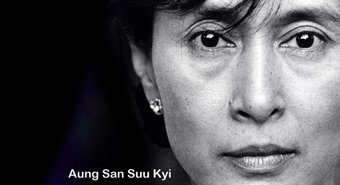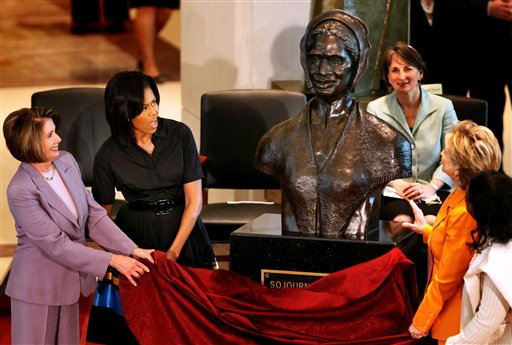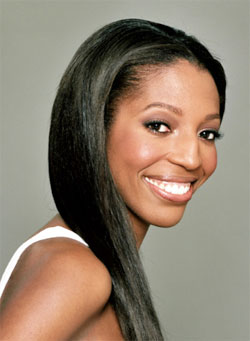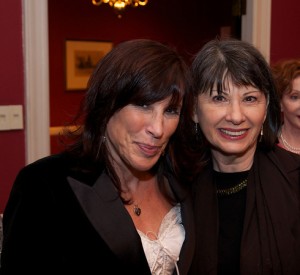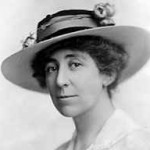Connect with Gloria!
Bring Gloria to Speak
Featured Upcoming Event
Wednesday, Oct. 2-Nov. 13, 2013 Gloria will teach a 6-week online course "9 Practical Leadership Power Tools to Advance Your Career". This is a Take The Lead event in partnership with Arizona State University Online. Participants will receive a certificate to enhance their resumes along with practical skills and understanding of power dynamics in the workplace. Don't miss this opportunity and register today!
More events here.
Buy Gloria’s Latest Book
-
-
-
Accolades

"With heartfelt encouragement ... (including strategies for including men in feminist causes), this guide is accessible to all."
~Publisher's Weekly
 "Female Writers Kicking Up Literary Dust"
"Female Writers Kicking Up Literary Dust"
~Women's e-News"Top 30 Political Mom Bloggers"
~The Stir"Gift Ideas for the Change Agents on Your List"
~Claire Mysko"Feminist Reading List"
~Deep Muck Big Rake"5 Must-Read Books for Women"
~Hello LadiesRead additional Media Buzz here.
-
Recent Posts
Recent Comments
- Gloria Feldt; An Inspiring Woman » CreativeBizHub on She’s Doing It: LisaBeth Weber Pins Pack Message Wallop
- Gloria Feldt on Stuck? Meet Jake and the Power of Letting Go to Move Forward
- Leslie on Stuck? Meet Jake and the Power of Letting Go to Move Forward
- Liz @ Creative Liberty on Sandberg: Are You Bossy or Merely Showing Leadership Skills?
- Gloria Feldt on Sandberg: Are You Bossy or Merely Showing Leadership Skills?
Categories
Listen to My Podcasts

Stacey Gualandi of The Women's Eye interviewed me about--what else--women and power.
Shelley Irwin of NPR asks me why I believe that no one is holding women back but themselves.
Suzanne Braun Levine and I discuss No Excuses on The Fiesty Side of Fifty on Blog Talk Radio.
Nicole Sanders talks to me about No Excuses on her show Radio or Not, on Progressive Talk Radio.
Dennis Lambert of KJZZ's "Morning Edition asks me why I wrote No Excuses.
Talking to Terry Hernon MacDonald about No Excuses over at Single Women Rule.
Discussing No Excuses with Joe Conason on Book Talk Radio.
Talking with Amanda Marcotte on RH Reality Check about women and power.
See Jane Do interview, encouraging women to step into positions of power and leadership – now!
Speaking with MadamaAmbi about No Excuses
Women's Relationship to Power and Leadership
Embrace ControversyAung San Suu Kyi Says Value Change Over Regime Changeby Catherine Engh on March 16th, 2012in 9 Ways Blog, Embrace Controversy, Gender, Leadership, Politics
As a contemporary figure making women’s history, Daw Aung San Suu Kyi reflects the kind of ‘power-to’ leadership which is truly earth shattering. “Regime change can be temporary,” she says, “but value change is a long-term business. We want the values in our country to be changed. “ Winner of the Nobel Peace Prize in 1991 Daw Aung San Suu Kyi is the leading pro-democracy opposition leader in Myanmar, formerly known as Burma, one of the world’s most isolated and repressive nations. Since a military junta grabbed power of the country in 1962, it has secured its power by rigging elections and suppressing opposition. Ms. Aung San Suu Kyi spent 15 of the last 20 years under house arrest after her party, the National League for Democracy, won an overwhelming victory in the 1990 elections but was denied power. In November 2010 elections, Myanmar’s main military-backed party won in a vote again engineered to assure the military’s continued grip on power. The National League of Democracy boycotted this election and called it what it was—undemocratic. Ms. Aung San Suu Kyi—who was released from house-arrest November of 2010—and her party, the National League for Democracy, have chosen to participate in elections this time around. On April 1 of this year, Suu Kyi and other pro-democratic candidates will run for 47 of the 48 open seats in Parliament. Her campaign speech, which will appear on National TV, will mark the first time the Nobel Peace laureate has been given the opportunity to use state media to promote her party’s platform. She calls for amending the 2008 constitution, Read the full article...{ Comments Off on Aung San Suu Kyi Says Value Change Over Regime Change comments }
Loretta Lynn, The Pill, and Family Planning: Happy International Women’s Day!by Catherine Engh on March 8th, 2012in 9 Ways Blog, Embrace Controversy, Gender, Inspiration, Know Your History, Leadership, Use What You've Got
Country music legend Loretta Lynn was known for lyrics that bluntly addressed issues in the lives of many women. She believed no topic was off limits, as long as it spoke to other women. In 1975, Lynn released The Pill, a single considered to be the first song to discuss birth control. The song tells a story of a wife who is upset about her husband getting her pregnant year after year, but is now happy because she can control her own reproductive choices. The song’s frank discussion of birth control was unprecedented at a time when many would have considered contraception a risqué subject matter. Some radio stations refused to play her song on these grounds.
In an interview later in life, Lynn recounted how she had been congratulated after the song’s success by a number of rural physicians, telling her how The Pill had done more to highlight the availability of birth control in isolated, rural areas, than all the literature they’d released. Fifty-two years after the inception of the pill in America, conservative newscaster Rush Limbaugh felt free to call Sandra Fluke, a Georgetown university student who asked her university to cover hormonal birth-control, a prostitute and a whore. His ignorant comment reminds us that there still exist widespread misconceptions and stigmas surrounding contraception. Let’s take the opportunity on International Women’s day to clear up any misconceptions, to examine the many social benefits of contraception and family planning. Read the full article...{ Comments Off on Loretta Lynn, The Pill, and Family Planning: Happy International Women’s Day! comments }
We’ve Come a Long Way, Maybe: Women’s History Creates the Futureby Gloria Feldt on March 1st, 2012in 9 Ways Blog, Embrace Controversy, Gender, Inspiration, Know Your History, Leadership, Politics
Truth’s admonition seems archaic now. Why are we still “talking about it?” Is women’s history of struggle for equal rights relevant in a world where women have outpaced men in earning college degrees, equaled their numbers in the workplace, and snatched the family purse to make 85% of consumer purchases? Since “The End of Men” has been declared and women dubbed “Mistresses of the Universe” shouldn’t young women today, at least those in the industrialized world, feel powerful enough to be and do anything they want? And shouldn’t more sympathy go to men these days, as the current efforts to gain acceptance for a men’s rights movement have suggested? Read the full article...{ 3 comments }
She’s Doing It: Keli Goff Sizes up Politics and the Power of Women (Plus Big No Excuses News!)by Gloria Feldt on February 22nd, 2012in 9 Ways Blog, Embrace Controversy, Leadership, No Excuses, Politics, She's Doing It
Gloria: Was there a moment when you felt very powerful recently? { Comments Off on She’s Doing It: Keli Goff Sizes up Politics and the Power of Women (Plus Big No Excuses News!) comments }
She’s Doing It: Merle Hoffman – “It Takes Bad Girls to Get Good Things Done”by Gloria Feldt on February 8th, 2012in 9 Ways Blog, Embrace Controversy, Gender, Inspiration, Leadership, No Excuses, She's Doing It
Tell me your personal story…why and how did you come to be doing what you a doing? I really fell into it serendipitously. My early years and adolescence were spent preparing to become a concert pianist. After I graduated from Music and Art, I also dabbled in painting and drama. When I finally decided to go to college at the age of 22, I need three part time jobs to pay for tuition—and one was with an internist , Dr. Martin Gold, for whom I worked as a medical assistant. At just this time (1970), abortion was decriminalized in New York which was three years before Roe v. Wade legalized abortion nationally. Dr. Gold, one of the architects of HIP, wanted to start a service for women subscribers. I got involved in the beginning of this project and it has become my life’s work. What motivates you? What’s your passion? I am motivated by very deep feelings of responsibility which began with the first patient who came to Choices. Read the full article...{ Comments Off on She’s Doing It: Merle Hoffman – “It Takes Bad Girls to Get Good Things Done” comments }
She’s Doing It: Joanne Tombrakos Taking the Non-Traditional Routeby Gloria Feldt on October 26th, 2011in 9 Ways Blog, Carpe the Chaos, Create a Movement, Define Your Own Terms, Embrace Controversy, Inspiration, Leadership, No Excuses, Personal Relationships, Power Tools, She's Doing It, Tell Your Story, Use What You've Got, Workplace I can’t wait to read Joanne Tombrakos’s new and first novel, The Secrets They Kept and you are going to see why below. After reading Joanne’s story, I think you’ll join me in running out to buy her book. At least I hope so. Joanne and I met at an 85 Broads breakfast a couple of years ago when we shared our stories of making purposeful life transitions. I’ve admired her writing on her blog ever since. And just look at how she’s applied the 9 Ways Power Tools! Read the full article... { 2 comments }
Seriously? Must a Woman Be Like a Man to Get Ahead?by Gloria Feldt on July 12th, 2011in 9 Ways Blog, Define Your Own Terms, Embrace Controversy, Employ Every Medium, Equal pay, Gender, Inspiration, Leadership, No Excuses, Workplace
A second question just as surely follows: if we can’t be authentically who we are, why would we want to “succeed” in male-dominated organizations or professions? Many women who leave the corporate world to stay home with children or enter entrepreneurial or nonprofit fields—or alternately, remain quietly in their jobs put only to find themselves doing the work but not getting the promotions—say they do so because they don’t want to become like men. Yet all signs point to a potential breakthrough moment for women even as we debate the pros and cons of taking on male camouflage. Read the full article...{ Comments Off on Seriously? Must a Woman Be Like a Man to Get Ahead? comments }
Friday Round Up: Does Gender Matter Anywhere Anymore?by Gloria Feldt on June 24th, 2011in 9 Ways Blog, Embrace Controversy, Gender, Inspiration, Leadership, Politics, Power Tools After my keynote at the AAUW national convention last Sunday, I overheard an attendee tell her friend about the graphic I’d used of a hot dog with “No More” written in mustard on it. I didn’t have to say a word when I put the graphic on the screen for the entire audience to start laughing at the shared awareness that I was referencing now-former NY Congressman Anthony Weiner (D-Stupid). And that by implication I was referencing the fatigue and disgust so many people feel about the seemingly unending waves of philandering politicians who thus far have been almost entirely male. Read the full article...{ 3 comments }
Remembering Jeannette Rankin, First US Congresswomanby Gloria Feldt on March 15th, 2011in Embrace Controversy, Know Your History, Leadership, Politics
Jeannette Rankin, a Montana Republican and lifelong pacifist, was elected to Congress in 1916; that’s four years before the Constitution gave all women the right to vote. Not only did Rankin lead the way as a first for women, she defied all semblance of political tradition by opposing both World War I and World War II. Rankin’s leadership style has many lessons for us today, especially since she did not shy away from controversy. The subject of Rankin’s very first Congressional vote (against President Wilson’s WWI war resolution) set the stage for her destiny. Rankin lost the support of most of the women’s suffragists who had campaigned for her, because they feared her anti-war vote made women look weak and hurt the suffrage movement. Embracing controversy can be tough when we ruffle the feathers of our opponents, but it’s even tougher when we lose the support of our closest friends and allies. Read the full article...{ 1 comments }
Embracing Controversy Means Standing By Your Convictionsby Gloria Feldt on November 5th, 2010in Embrace Controversy, Power Tools
Read the full article... { 3 comments }
|

